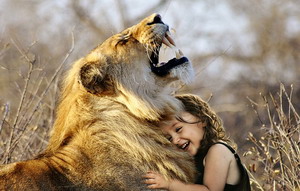 A month ago our spiritual support circle embarked upon an investigation of the practical application of love. For the last couple of years, we have focused on various spiritual principles that are designed to unblock our functional participation with life. Ultimately, this was supposed to result in a greater flow of love in our lives. However, we have found that we can spend an endless amount of time trying to fix things without actually getting to the heart of the matter of simply loving. As Valentine’s Day is right around the corner, this seemed like a good time to ruminate on the subject of love, so why not write a newsletter on the subject?
A month ago our spiritual support circle embarked upon an investigation of the practical application of love. For the last couple of years, we have focused on various spiritual principles that are designed to unblock our functional participation with life. Ultimately, this was supposed to result in a greater flow of love in our lives. However, we have found that we can spend an endless amount of time trying to fix things without actually getting to the heart of the matter of simply loving. As Valentine’s Day is right around the corner, this seemed like a good time to ruminate on the subject of love, so why not write a newsletter on the subject?
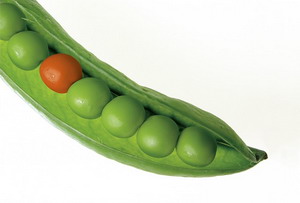 I certainly don’t have all the answers on this subject, but the last month has brought in several illuminating perspectives. When I contemplate a subject, I open to seeing contrasts and conflicts in my observed and experienced world. Normally, I like to have a model of how things are “supposed to work” in my head and just run with that day-to-day. When my own or others’ behaviors don’t fit that model, I tend to dismiss these glitches as anomalies or simply as things I just don’t understand yet. Focusing on the glitches forces me to reassess my model and overhaul it or possibly abandon it altogether. Either way, this takes a great deal of effort. Our beliefs about how things are “supposed to work” take years to construct. Unfortunately, many of those years include a lot of experiences that are generally based on lots of inaccurate perceptions.
I certainly don’t have all the answers on this subject, but the last month has brought in several illuminating perspectives. When I contemplate a subject, I open to seeing contrasts and conflicts in my observed and experienced world. Normally, I like to have a model of how things are “supposed to work” in my head and just run with that day-to-day. When my own or others’ behaviors don’t fit that model, I tend to dismiss these glitches as anomalies or simply as things I just don’t understand yet. Focusing on the glitches forces me to reassess my model and overhaul it or possibly abandon it altogether. Either way, this takes a great deal of effort. Our beliefs about how things are “supposed to work” take years to construct. Unfortunately, many of those years include a lot of experiences that are generally based on lots of inaccurate perceptions.
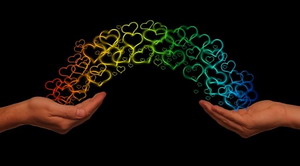 One of the first illuminations that cropped up unfolded from understanding what love looks and acts like. Love is seen in actions that demonstrate value for others. This forces me to look at what value means. As I danced around this feeling concept for several days, I came to see that human value exists as an exchange. To value a person is not the same as valuing a pair of shoes. This is because what we value in a person is not their physical existence, but their specific participation with us. Participation is bi-directional. Imagine your best friend is standing in front of you, but someone has dehydrated them and sealed them in a block of plastic. After a few weeks, does that block of plastic still feel like your best friend? There is no longer positive participation available from or with your friend. Without that, is the value still the same? No, it’s not. Like a shoe or a bowling trophy, they are still there, but the experience of them is not the same.
One of the first illuminations that cropped up unfolded from understanding what love looks and acts like. Love is seen in actions that demonstrate value for others. This forces me to look at what value means. As I danced around this feeling concept for several days, I came to see that human value exists as an exchange. To value a person is not the same as valuing a pair of shoes. This is because what we value in a person is not their physical existence, but their specific participation with us. Participation is bi-directional. Imagine your best friend is standing in front of you, but someone has dehydrated them and sealed them in a block of plastic. After a few weeks, does that block of plastic still feel like your best friend? There is no longer positive participation available from or with your friend. Without that, is the value still the same? No, it’s not. Like a shoe or a bowling trophy, they are still there, but the experience of them is not the same.
 The inherent reality of the bi-directional nature of human value, and therefore love, creates a special difficulty. Love is an exchange. If you believe you have nothing to exchange then the flow of love you are looking for does not happen. This is because you have to value yourself (love yourself) in order to generate a loving relationship with someone else. You can behave lovingly without loving yourself, but you are not able to receive the love (positive value-based participation) from the other person. They might feel loved by you because of how well you treat them (if they have self-love on board), but you will be missing out on the feeling of being loved that you are seeking.
The inherent reality of the bi-directional nature of human value, and therefore love, creates a special difficulty. Love is an exchange. If you believe you have nothing to exchange then the flow of love you are looking for does not happen. This is because you have to value yourself (love yourself) in order to generate a loving relationship with someone else. You can behave lovingly without loving yourself, but you are not able to receive the love (positive value-based participation) from the other person. They might feel loved by you because of how well you treat them (if they have self-love on board), but you will be missing out on the feeling of being loved that you are seeking.
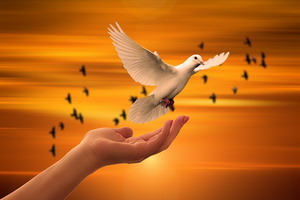 Our minds tend to cover this up by looking at the behavior of others and determining that based on the observable behaviors of others, we are loved. The problem is we don’t feel it. The feeling we are looking for brings a sense of ease and peace. The mental recognition of love without the inner feeling of peace that is designed to come with it produces some of those glitches in “how things are supposed to work” that my mind likes to ignore, but can’t. Without that feeling reality of peace and ease, fear creeps in and feelings like insecurity or jealousy become a central focus. We are not able to trust easily. We become demanding or controlling of those we supposedly love. Previously these behaviors never made sense to me, but now I begin to get a glimmer of what this is all about.
Our minds tend to cover this up by looking at the behavior of others and determining that based on the observable behaviors of others, we are loved. The problem is we don’t feel it. The feeling we are looking for brings a sense of ease and peace. The mental recognition of love without the inner feeling of peace that is designed to come with it produces some of those glitches in “how things are supposed to work” that my mind likes to ignore, but can’t. Without that feeling reality of peace and ease, fear creeps in and feelings like insecurity or jealousy become a central focus. We are not able to trust easily. We become demanding or controlling of those we supposedly love. Previously these behaviors never made sense to me, but now I begin to get a glimmer of what this is all about.
 If I don’t believe myself to be of value and love who I am then I don’t identify myself as someone who can be loved. It does not matter that someone tells me they love me, in my heart, I am not going to believe it. My head will pretend to go along with the story, but in my heart, I am still filled with fear and all its stepchildren. Eventually, this fear will affect my outer behavior. This is where pesky childhood experiences and beliefs pop up. We may have had parents who loved us and expressed that love in various forms or we may have had cold, uncaring parents who never expressed love. Either way, if we do not develop a true appreciation of our value in the world to others, then we are not going to learn to love ourselves.
If I don’t believe myself to be of value and love who I am then I don’t identify myself as someone who can be loved. It does not matter that someone tells me they love me, in my heart, I am not going to believe it. My head will pretend to go along with the story, but in my heart, I am still filled with fear and all its stepchildren. Eventually, this fear will affect my outer behavior. This is where pesky childhood experiences and beliefs pop up. We may have had parents who loved us and expressed that love in various forms or we may have had cold, uncaring parents who never expressed love. Either way, if we do not develop a true appreciation of our value in the world to others, then we are not going to learn to love ourselves.
 Where does self-love come from? What can we appreciate that has value within ourselves? Another way of describing this is the development of self-worth or self-esteem. Where does this come from? This was a hot topic back in the early 70s in the psychology and education fields. With research it was discovered that this self-esteem thing was the byproduct of successful problem solving, particularly solving the problems of how to participate positively and effectively with others. When you figure out how to do something well, you feel pretty good about yourself. Unfortunately, this research became bastardized by the politics of the times that insisted that no child be left behind. While it is a lovely idea, trying to force this on everybody produced the exact opposite of its intended outcomes. The educational system is not capable of making every child super smart and successful. So instead they decided that if they pretended that every child was smart by giving everyone good grades or giving everyone prizes just for showing up then they would produce high self-esteem. Well, children are not that stupid. They knew that these grades and prizes did not represent accomplishment or high-level achievement. The intent was to make them all feel like winners, but the actual result was to undermine their self-esteem and make them feel like losers. Esteem is built by succeeding at doing something hard, overcoming challenges, and learning new skills. It would be like giving everybody in a marathon a first-place ribbon before they even started the race. How are they going to feel if you tell them they don’t need to run the race because they are all winners without having to do anything? Ribbons don’t make you a winner. It is overcoming the challenge and facing the reality that most people will not be a winner that makes winning have value. Value is based on scarcity. That is why sand is not as valuable as diamonds.
Where does self-love come from? What can we appreciate that has value within ourselves? Another way of describing this is the development of self-worth or self-esteem. Where does this come from? This was a hot topic back in the early 70s in the psychology and education fields. With research it was discovered that this self-esteem thing was the byproduct of successful problem solving, particularly solving the problems of how to participate positively and effectively with others. When you figure out how to do something well, you feel pretty good about yourself. Unfortunately, this research became bastardized by the politics of the times that insisted that no child be left behind. While it is a lovely idea, trying to force this on everybody produced the exact opposite of its intended outcomes. The educational system is not capable of making every child super smart and successful. So instead they decided that if they pretended that every child was smart by giving everyone good grades or giving everyone prizes just for showing up then they would produce high self-esteem. Well, children are not that stupid. They knew that these grades and prizes did not represent accomplishment or high-level achievement. The intent was to make them all feel like winners, but the actual result was to undermine their self-esteem and make them feel like losers. Esteem is built by succeeding at doing something hard, overcoming challenges, and learning new skills. It would be like giving everybody in a marathon a first-place ribbon before they even started the race. How are they going to feel if you tell them they don’t need to run the race because they are all winners without having to do anything? Ribbons don’t make you a winner. It is overcoming the challenge and facing the reality that most people will not be a winner that makes winning have value. Value is based on scarcity. That is why sand is not as valuable as diamonds.
 Your self-esteem and resultant self-appreciation and love come from facing difficult challenges and overcoming them. It comes from developing participation skills. There is an almost endless set of life skills that can be learned, and each person gets to create and develop their unique blend of these skills. Your unique blend is what makes you you, and makes you valuable to others. Everyone does this in life, but what I saw is that not everyone identifies with their skill sets and appreciates the value of their skills. Without that identification with what you have to offer others that is of value, you have no self-esteem. You don’t see that you are worthy of the love that comes your way. You don’t let it in.
Your self-esteem and resultant self-appreciation and love come from facing difficult challenges and overcoming them. It comes from developing participation skills. There is an almost endless set of life skills that can be learned, and each person gets to create and develop their unique blend of these skills. Your unique blend is what makes you you, and makes you valuable to others. Everyone does this in life, but what I saw is that not everyone identifies with their skill sets and appreciates the value of their skills. Without that identification with what you have to offer others that is of value, you have no self-esteem. You don’t see that you are worthy of the love that comes your way. You don’t let it in.
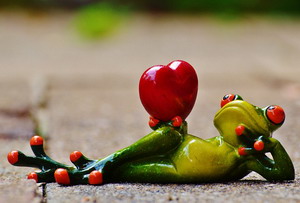 The Valentine’s message of this newsletter is to send a Valentine to yourself this year. Appreciate who you are. See what you have to give that others can value. We don’t need to be perfect to be loved. Quite the opposite – perfect people are generally quite annoying. Give to others what gives you joy. Share your bliss. Maybe only one person in ten may get you and be able to relate to what you find valuable in life, but that one in ten is plenty. You don’t need to be the same as them. People are not looking for emotional sameness. They are looking for others to augment their weak spots emotionally. Relationships are all about sharing both strengths and weaknesses. They are about mutual support. It is our life skill set differences that make us interesting to others. One person’s social skills can greatly support another person’s business skills and vice versa. The combination of complementary skills is huge. But you have to identify and appreciate your skills to shine out with those skills so others can see and participate with them. Shine. That is the message. Shine, shine, shine.
The Valentine’s message of this newsletter is to send a Valentine to yourself this year. Appreciate who you are. See what you have to give that others can value. We don’t need to be perfect to be loved. Quite the opposite – perfect people are generally quite annoying. Give to others what gives you joy. Share your bliss. Maybe only one person in ten may get you and be able to relate to what you find valuable in life, but that one in ten is plenty. You don’t need to be the same as them. People are not looking for emotional sameness. They are looking for others to augment their weak spots emotionally. Relationships are all about sharing both strengths and weaknesses. They are about mutual support. It is our life skill set differences that make us interesting to others. One person’s social skills can greatly support another person’s business skills and vice versa. The combination of complementary skills is huge. But you have to identify and appreciate your skills to shine out with those skills so others can see and participate with them. Shine. That is the message. Shine, shine, shine.
Take care,
David
Ellen 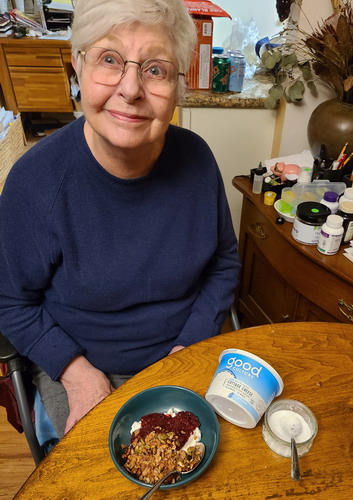
In the evening Ellen likes to have a little snack. For some time now her favorite snack has been cultured cottage cheese with some sugar free berry preserves that I make. While it tastes like a dessert, in fact it is high protein, full of probiotic bacteria, high in polyphenols, and even high in soluble fiber. What a fantastic snack!
 Depression tied to body temperature
Depression tied to body temperature
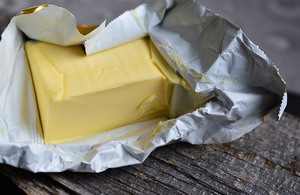 Memories are made of fat
Memories are made of fat
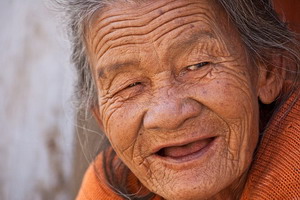 Aging tied to decreased NAD+ levels
Aging tied to decreased NAD+ levels
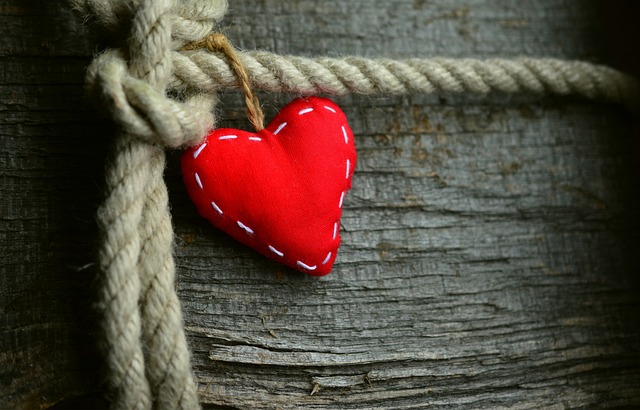
 A month ago our spiritual support circle embarked upon an investigation of the practical application of love. For the last couple of years, we have focused on various spiritual principles that are designed to unblock our functional participation with life. Ultimately, this was supposed to result in a greater flow of love in our lives. However, we have found that we can spend an endless amount of time trying to fix things without actually getting to the heart of the matter of simply loving. As Valentine’s Day is right around the corner, this seemed like a good time to ruminate on the subject of love, so why not write a newsletter on the subject?
A month ago our spiritual support circle embarked upon an investigation of the practical application of love. For the last couple of years, we have focused on various spiritual principles that are designed to unblock our functional participation with life. Ultimately, this was supposed to result in a greater flow of love in our lives. However, we have found that we can spend an endless amount of time trying to fix things without actually getting to the heart of the matter of simply loving. As Valentine’s Day is right around the corner, this seemed like a good time to ruminate on the subject of love, so why not write a newsletter on the subject? I certainly don’t have all the answers on this subject, but the last month has brought in several illuminating perspectives. When I contemplate a subject, I open to seeing contrasts and conflicts in my observed and experienced world. Normally, I like to have a model of how things are “supposed to work” in my head and just run with that day-to-day. When my own or others’ behaviors don’t fit that model, I tend to dismiss these glitches as anomalies or simply as things I just don’t understand yet. Focusing on the glitches forces me to reassess my model and overhaul it or possibly abandon it altogether. Either way, this takes a great deal of effort. Our beliefs about how things are “supposed to work” take years to construct. Unfortunately, many of those years include a lot of experiences that are generally based on lots of inaccurate perceptions.
I certainly don’t have all the answers on this subject, but the last month has brought in several illuminating perspectives. When I contemplate a subject, I open to seeing contrasts and conflicts in my observed and experienced world. Normally, I like to have a model of how things are “supposed to work” in my head and just run with that day-to-day. When my own or others’ behaviors don’t fit that model, I tend to dismiss these glitches as anomalies or simply as things I just don’t understand yet. Focusing on the glitches forces me to reassess my model and overhaul it or possibly abandon it altogether. Either way, this takes a great deal of effort. Our beliefs about how things are “supposed to work” take years to construct. Unfortunately, many of those years include a lot of experiences that are generally based on lots of inaccurate perceptions. One of the first illuminations that cropped up unfolded from understanding what love looks and acts like. Love is seen in actions that demonstrate value for others. This forces me to look at what value means. As I danced around this feeling concept for several days, I came to see that human value exists as an exchange. To value a person is not the same as valuing a pair of shoes. This is because what we value in a person is not their physical existence, but their specific participation with us. Participation is bi-directional. Imagine your best friend is standing in front of you, but someone has dehydrated them and sealed them in a block of plastic. After a few weeks, does that block of plastic still feel like your best friend? There is no longer positive participation available from or with your friend. Without that, is the value still the same? No, it’s not. Like a shoe or a bowling trophy, they are still there, but the experience of them is not the same.
One of the first illuminations that cropped up unfolded from understanding what love looks and acts like. Love is seen in actions that demonstrate value for others. This forces me to look at what value means. As I danced around this feeling concept for several days, I came to see that human value exists as an exchange. To value a person is not the same as valuing a pair of shoes. This is because what we value in a person is not their physical existence, but their specific participation with us. Participation is bi-directional. Imagine your best friend is standing in front of you, but someone has dehydrated them and sealed them in a block of plastic. After a few weeks, does that block of plastic still feel like your best friend? There is no longer positive participation available from or with your friend. Without that, is the value still the same? No, it’s not. Like a shoe or a bowling trophy, they are still there, but the experience of them is not the same. The inherent reality of the bi-directional nature of human value, and therefore love, creates a special difficulty. Love is an exchange. If you believe you have nothing to exchange then the flow of love you are looking for does not happen. This is because you have to value yourself (love yourself) in order to generate a loving relationship with someone else. You can behave lovingly without loving yourself, but you are not able to receive the love (positive value-based participation) from the other person. They might feel loved by you because of how well you treat them (if they have self-love on board), but you will be missing out on the feeling of being loved that you are seeking.
The inherent reality of the bi-directional nature of human value, and therefore love, creates a special difficulty. Love is an exchange. If you believe you have nothing to exchange then the flow of love you are looking for does not happen. This is because you have to value yourself (love yourself) in order to generate a loving relationship with someone else. You can behave lovingly without loving yourself, but you are not able to receive the love (positive value-based participation) from the other person. They might feel loved by you because of how well you treat them (if they have self-love on board), but you will be missing out on the feeling of being loved that you are seeking. Our minds tend to cover this up by looking at the behavior of others and determining that based on the observable behaviors of others, we are loved. The problem is we don’t feel it. The feeling we are looking for brings a sense of ease and peace. The mental recognition of love without the inner feeling of peace that is designed to come with it produces some of those glitches in “how things are supposed to work” that my mind likes to ignore, but can’t. Without that feeling reality of peace and ease, fear creeps in and feelings like insecurity or jealousy become a central focus. We are not able to trust easily. We become demanding or controlling of those we supposedly love. Previously these behaviors never made sense to me, but now I begin to get a glimmer of what this is all about.
Our minds tend to cover this up by looking at the behavior of others and determining that based on the observable behaviors of others, we are loved. The problem is we don’t feel it. The feeling we are looking for brings a sense of ease and peace. The mental recognition of love without the inner feeling of peace that is designed to come with it produces some of those glitches in “how things are supposed to work” that my mind likes to ignore, but can’t. Without that feeling reality of peace and ease, fear creeps in and feelings like insecurity or jealousy become a central focus. We are not able to trust easily. We become demanding or controlling of those we supposedly love. Previously these behaviors never made sense to me, but now I begin to get a glimmer of what this is all about. If I don’t believe myself to be of value and love who I am then I don’t identify myself as someone who can be loved. It does not matter that someone tells me they love me, in my heart, I am not going to believe it. My head will pretend to go along with the story, but in my heart, I am still filled with fear and all its stepchildren. Eventually, this fear will affect my outer behavior. This is where pesky childhood experiences and beliefs pop up. We may have had parents who loved us and expressed that love in various forms or we may have had cold, uncaring parents who never expressed love. Either way, if we do not develop a true appreciation of our value in the world to others, then we are not going to learn to love ourselves.
If I don’t believe myself to be of value and love who I am then I don’t identify myself as someone who can be loved. It does not matter that someone tells me they love me, in my heart, I am not going to believe it. My head will pretend to go along with the story, but in my heart, I am still filled with fear and all its stepchildren. Eventually, this fear will affect my outer behavior. This is where pesky childhood experiences and beliefs pop up. We may have had parents who loved us and expressed that love in various forms or we may have had cold, uncaring parents who never expressed love. Either way, if we do not develop a true appreciation of our value in the world to others, then we are not going to learn to love ourselves. Where does self-love come from? What can we appreciate that has value within ourselves? Another way of describing this is the development of self-worth or self-esteem. Where does this come from? This was a hot topic back in the early 70s in the psychology and education fields. With research it was discovered that this self-esteem thing was the byproduct of successful problem solving, particularly solving the problems of how to participate positively and effectively with others. When you figure out how to do something well, you feel pretty good about yourself. Unfortunately, this research became bastardized by the politics of the times that insisted that no child be left behind. While it is a lovely idea, trying to force this on everybody produced the exact opposite of its intended outcomes. The educational system is not capable of making every child super smart and successful. So instead they decided that if they pretended that every child was smart by giving everyone good grades or giving everyone prizes just for showing up then they would produce high self-esteem. Well, children are not that stupid. They knew that these grades and prizes did not represent accomplishment or high-level achievement. The intent was to make them all feel like winners, but the actual result was to undermine their self-esteem and make them feel like losers. Esteem is built by succeeding at doing something hard, overcoming challenges, and learning new skills. It would be like giving everybody in a marathon a first-place ribbon before they even started the race. How are they going to feel if you tell them they don’t need to run the race because they are all winners without having to do anything? Ribbons don’t make you a winner. It is overcoming the challenge and facing the reality that most people will not be a winner that makes winning have value. Value is based on scarcity. That is why sand is not as valuable as diamonds.
Where does self-love come from? What can we appreciate that has value within ourselves? Another way of describing this is the development of self-worth or self-esteem. Where does this come from? This was a hot topic back in the early 70s in the psychology and education fields. With research it was discovered that this self-esteem thing was the byproduct of successful problem solving, particularly solving the problems of how to participate positively and effectively with others. When you figure out how to do something well, you feel pretty good about yourself. Unfortunately, this research became bastardized by the politics of the times that insisted that no child be left behind. While it is a lovely idea, trying to force this on everybody produced the exact opposite of its intended outcomes. The educational system is not capable of making every child super smart and successful. So instead they decided that if they pretended that every child was smart by giving everyone good grades or giving everyone prizes just for showing up then they would produce high self-esteem. Well, children are not that stupid. They knew that these grades and prizes did not represent accomplishment or high-level achievement. The intent was to make them all feel like winners, but the actual result was to undermine their self-esteem and make them feel like losers. Esteem is built by succeeding at doing something hard, overcoming challenges, and learning new skills. It would be like giving everybody in a marathon a first-place ribbon before they even started the race. How are they going to feel if you tell them they don’t need to run the race because they are all winners without having to do anything? Ribbons don’t make you a winner. It is overcoming the challenge and facing the reality that most people will not be a winner that makes winning have value. Value is based on scarcity. That is why sand is not as valuable as diamonds. Your self-esteem and resultant self-appreciation and love come from facing difficult challenges and overcoming them. It comes from developing participation skills. There is an almost endless set of life skills that can be learned, and each person gets to create and develop their unique blend of these skills. Your unique blend is what makes you you, and makes you valuable to others. Everyone does this in life, but what I saw is that not everyone identifies with their skill sets and appreciates the value of their skills. Without that identification with what you have to offer others that is of value, you have no self-esteem. You don’t see that you are worthy of the love that comes your way. You don’t let it in.
Your self-esteem and resultant self-appreciation and love come from facing difficult challenges and overcoming them. It comes from developing participation skills. There is an almost endless set of life skills that can be learned, and each person gets to create and develop their unique blend of these skills. Your unique blend is what makes you you, and makes you valuable to others. Everyone does this in life, but what I saw is that not everyone identifies with their skill sets and appreciates the value of their skills. Without that identification with what you have to offer others that is of value, you have no self-esteem. You don’t see that you are worthy of the love that comes your way. You don’t let it in. The Valentine’s message of this newsletter is to send a Valentine to yourself this year. Appreciate who you are. See what you have to give that others can value. We don’t need to be perfect to be loved. Quite the opposite – perfect people are generally quite annoying. Give to others what gives you joy. Share your bliss. Maybe only one person in ten may get you and be able to relate to what you find valuable in life, but that one in ten is plenty. You don’t need to be the same as them. People are not looking for emotional sameness. They are looking for others to augment their weak spots emotionally. Relationships are all about sharing both strengths and weaknesses. They are about mutual support. It is our life skill set differences that make us interesting to others. One person’s social skills can greatly support another person’s business skills and vice versa. The combination of complementary skills is huge. But you have to identify and appreciate your skills to shine out with those skills so others can see and participate with them. Shine. That is the message. Shine, shine, shine.
The Valentine’s message of this newsletter is to send a Valentine to yourself this year. Appreciate who you are. See what you have to give that others can value. We don’t need to be perfect to be loved. Quite the opposite – perfect people are generally quite annoying. Give to others what gives you joy. Share your bliss. Maybe only one person in ten may get you and be able to relate to what you find valuable in life, but that one in ten is plenty. You don’t need to be the same as them. People are not looking for emotional sameness. They are looking for others to augment their weak spots emotionally. Relationships are all about sharing both strengths and weaknesses. They are about mutual support. It is our life skill set differences that make us interesting to others. One person’s social skills can greatly support another person’s business skills and vice versa. The combination of complementary skills is huge. But you have to identify and appreciate your skills to shine out with those skills so others can see and participate with them. Shine. That is the message. Shine, shine, shine.